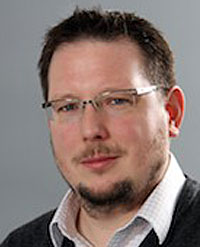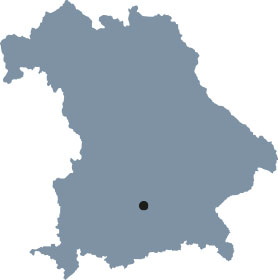Master in Quantitative Economics
Economic research has changed considerably due to the increasing availability of large data sets. Many scientific issues, which until recently could only be discussed theoretically, can now be proved with the analysis of suitable data. The Elite Graduate Program “Master in Quantitative Economics“ handpicks excellent national and international students to prepare them for a career in this new field of research.
| Degree | Master of Science |
| Duration of study | Four semesters |
| Place of study | Munich |
| Admission requirements | Bachelor’s degree in one of following fields: political economics, economics, statistics, informatics or mathematicsk |
| Language of instruction | English |
| Application deadline | March 15th |
| Begin of studies | Winter semester |
| Head | Prof. Dr. Florian Englmaier |
| Coordinator | Dr. Maximilian Breu Contact the coordinator |
| Furhter Information | Website Master in Quantitative Economics |
The Elite Graduate Program “Quantitative Economics” offers a well-rounded academic education in economics to excellent national and international students. After a rigorous training in microeconomics, macroeconomics and econometrics, students are free to pursue their own research focus from an early stage of studies onwards in coordination with their mentor.
Besides the immersion in state-of-the-art international research, the training in methodological knowledge and key qualifications, if necessary by means of expert guest lectures, plays an important role. This training enables our students to get familiar with new methods and, thus, lay the ground for lifelong learning.
The students gain an in-depth understanding of modern economics as well as the up-to-date quantitative methods to tackle economic issues in the areas of microeconomics, macroeconomics, public finance and econometrics on a PhD student level. In this way, students can focus their research in one of these areas.
In addition to economics proficiency, the program offers methodological courses for applying statistical and project planning software as well as programming languages allowing students to apply the knowledge gained in their own research project in the 3rd semester and their master thesis.
Students can choose from a wide range of specializations with the commitment of the professors of our faculty and, thus, shape their own individualscientific profile according to their preferred focus.
We support our students in a mentor program: each student is assigned a mentor from the senior faculty and a postgraduate mentor.
In collaboration with their mentors, students can discuss research projects, ideas and their individual specializations. Besides the high quality of studies, students also benefit from soft skill and key competence courses.


The Master in Quantitative Economics trains the economists of the future. Equipped with economics expertise and the know-how of quantitative methods, ours students can analyze and solve the social challenges of the 21st century.
Prof. Dr. Florian Englmaier


